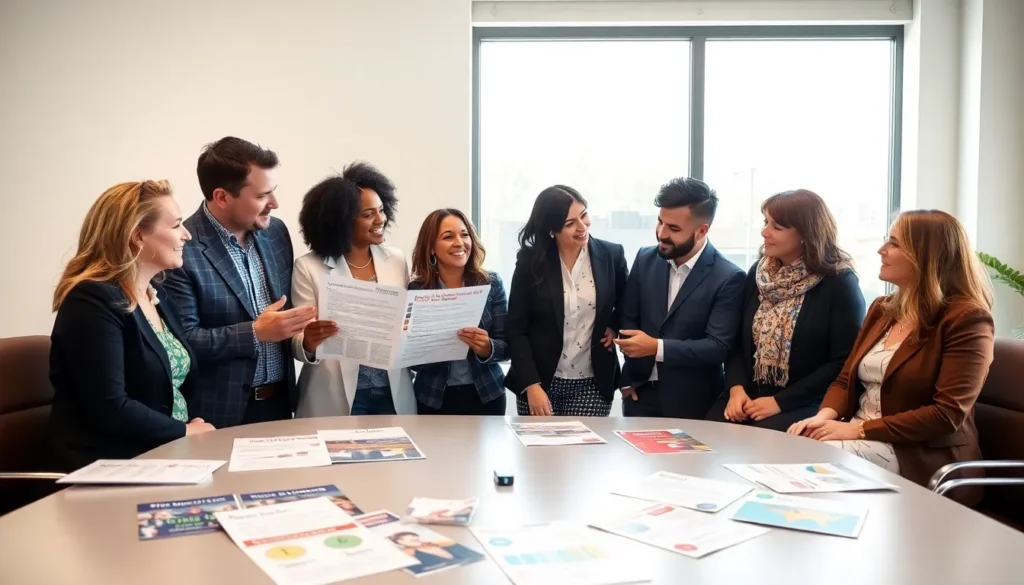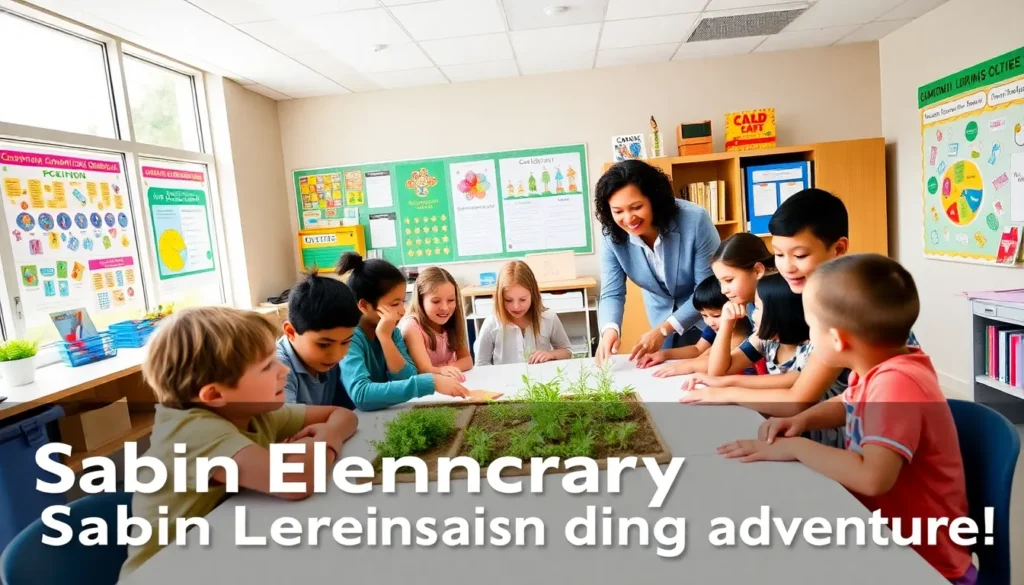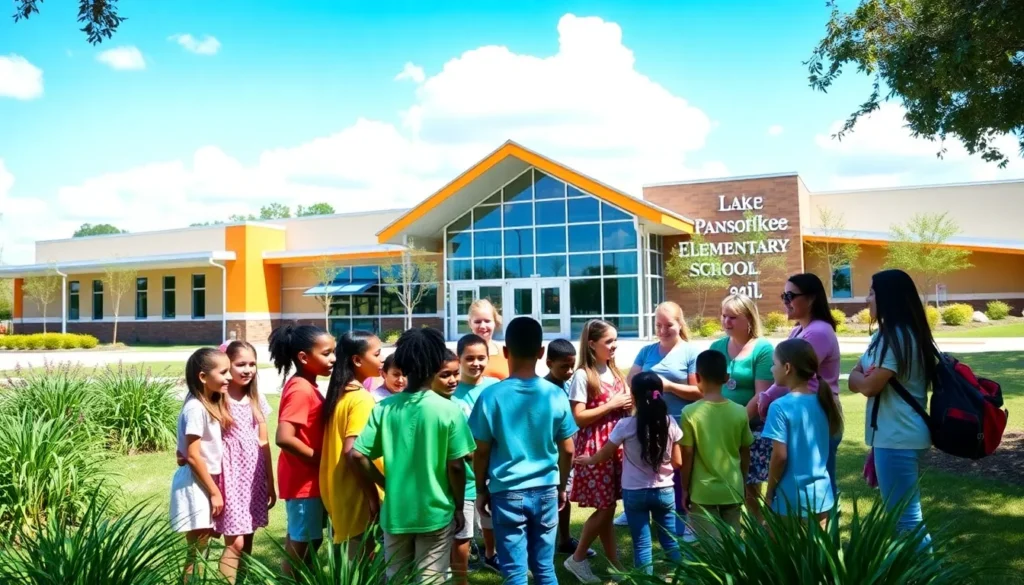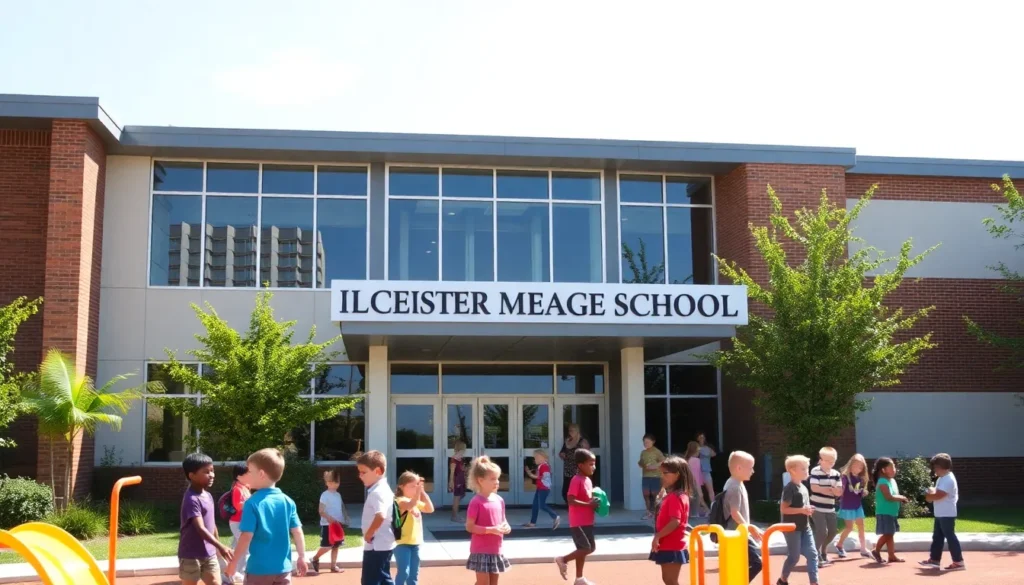Divorce can be one of life’s most challenging experiences, often leaving individuals feeling lost and overwhelmed. As relationships unravel, understanding the emotional and legal complexities becomes crucial. Divorce education provides valuable insights that empower individuals to navigate this tumultuous journey with confidence.
This educational approach offers tools and resources to help people make informed decisions about their futures. From understanding the legal process to managing emotional well-being, divorce education equips individuals with the knowledge they need to emerge stronger. By learning about the intricacies of divorce, they can mitigate stress and focus on healing and rebuilding their lives.
Table of Contents
ToggleOverview Of Divorce Education
Divorce education equips individuals with essential knowledge about the divorce process, enabling them to manage legal and emotional challenges effectively. Programs often cover various topics, including legal procedures, financial implications, and co-parenting strategies.
Key Components of Divorce Education
- Legal Knowledge: Education offers insights into divorce laws, property division, and spousal support requirements. Understanding these elements aids in making informed decisions.
- Emotional Support: Resources address emotional health, focusing on coping strategies, stress management, and personal well-being during and after divorce.
- Communication Skills: Programs often include guidance on facilitating effective communication between spouses and co-parents. Improved communication can lead to more amicable settlements and better co-parenting outcomes.
- Financial Literacy: Divorce education provides financial advice, including budgeting, asset distribution, and understanding long-term financial impacts of divorce.
- Co-parenting Resources: For parents, effective co-parenting strategies are crucial. Education helps individuals navigate custody arrangements and ensure children’s well-being.
Benefits of Divorce Education
- Empowerment: Individuals gain confidence by acquiring knowledge and resources, leading to better decision-making.
- Stress Reduction: Understanding the divorce process decreases uncertainty and anxiety, promoting emotional stability.
- Improved Outcomes: Educated individuals often achieve more favorable divorce settlements and maintain healthier relationships post-divorce.
- Community Support: Divorce education programs frequently offer networking opportunities, connecting individuals with others facing similar situations.
Individuals engaged in education programs experience better emotional and practical outcomes throughout their divorce journey.
Importance Of Divorce Education

Divorce education plays a crucial role in equipping individuals with the knowledge and skills necessary to navigate the complexities of separation. This education significantly impacts both parents and children during and after the divorce process.
Benefits For Parents
Divorce education provides parents with vital resources for managing the emotional and logistical challenges of separation.
- Enhanced Communication: Education helps parents communicate effectively, reducing conflict and promoting cooperation when discussing parenting plans.
- Improved Emotional Management: Learning techniques for emotional regulation enables parents to cope better with stress and anxiety, leading to healthier interactions.
- Financial Literacy: Understanding financial implications assists parents in making informed decisions during asset division and child support agreements, minimizing future disputes.
- Effective Co-Parenting Strategies: Gaining knowledge about successful co-parenting practices supports parents in prioritizing their children’s well-being and maintaining stability.
Benefits For Children
Divorce education positively influences children’s emotional and psychological health during a parent’s separation.
- Stability and Routine: When parents are educated, they often create consistent routines for children, which provides a sense of security amidst changes.
- Improved Emotional Resilience: Parents well-versed in emotional support techniques can better help children process their feelings, promoting healthy emotional development.
- Reduced Conflict Impact: Children benefit when parents minimize conflict, as a supportive atmosphere fosters healthier relationships and emotional stability.
- Access to Resources: Educated parents are more likely to connect their children to support systems, such as counseling or peer support groups, further aiding emotional well-being.
Types Of Divorce Education Programs
Divorce education programs come in various formats, offering flexibility and accessibility to those seeking support. Two prominent types include online programs and in-person workshops.
Online Programs
Online programs provide convenient access to divorce education resources from home. Participants can engage with coursework at their own pace, allowing them to balance personal and professional commitments. Typically, these programs cover topics like legal processes, financial management, and emotional wellbeing through videos, articles, and interactive quizzes. Many online platforms also facilitate discussion forums, enabling participants to connect with peers and share experiences.
In-Person Workshops
In-person workshops offer structured, interactive environments for individuals seeking divorce education. These sessions typically involve group activities, discussions, and expert-led presentations. Participants benefit from real-time feedback and personal interactions with instructors and fellow attendees. Workshops often emphasize practical skills such as negotiation, communication, and emotional coping strategies, enhancing participants’ abilities to navigate their divorce effectively. Local community centers, legal aid organizations, and mental health agencies frequently host these workshops, making them accessible to a broad audience.
Key Concepts In Divorce Education
Divorce education encompasses essential concepts to help individuals navigate the complexities of separation. Understanding communication strategies and co-parenting techniques proves crucial for emotional well-being and effective relationship management during this process.
Communication Strategies
Effective communication skills play a vital role in managing relationships post-divorce. Individuals should focus on:
- Active Listening: Engaging fully with others fosters understanding and reduces misunderstandings.
- Clear Expression: Articulating thoughts and feelings honestly helps to prevent escalation of conflicts.
- Non-Verbal Cues: Being aware of body language and facial expressions influences the tone of discussions.
- Empathy Practice: Showing empathy encourages compassion and mutual respect during challenging conversations.
Utilizing these strategies promotes healthier interactions and supports emotional healing, paving the way for a more amicable post-divorce relationship.
Co-Parenting Techniques
Co-parenting techniques significantly impact children’s well-being during and after divorce. Key elements include:
- Unified Approach: Establishing a consistent parenting style helps children adjust better to changes.
- Regular Communication: Frequent updates about children’s needs and schedules ensure alignment and reduce conflict.
- Conflict Resolution Skills: Learning to address disagreements constructively minimizes stress for both parents and children.
- Flexibility: Adapting to changing circumstances fosters cooperation and supports children’s best interests.
Implementing these techniques provides a stable environment for children, supports parental collaboration, and enhances overall family dynamics during this transition.
Challenges In Implementing Divorce Education
Implementing divorce education faces several challenges that can hinder its effectiveness. These obstacles include:
- Perception of Divorce Education: Many view divorce education as unnecessary or merely another expense. This perception can prevent individuals from participating in programs that offer valuable resources.
- Access to Resources: Limited access to divorce education programs exists in some communities. Geographic limitations may restrict individuals’ ability to attend workshops. Additionally, online resources may not be easily accessible to everyone due to technology barriers.
- Individual Readiness: Readiness varies among individuals navigating divorce. Some may resist education, feeling overwhelmed by emotions or prioritizing other immediate concerns. This emotional resistance can impede engagement and participation.
- Program Variation: Inconsistent quality of programs complicates the landscape of divorce education. Variability in content and delivery methods can affect users’ experiences. Ensuring a uniform standard across offerings remains a challenge.
- Co-parenting Resistance: In cases involving children, co-parenting dynamics often affect participation. One parent may discourage the other from engaging in education programs due to personal conflicts. This resistance can lead to a lack of cooperation, ultimately affecting children’s outcomes.
- Funding Limitations: Many programs rely on grants and donations, which can fluctuate. Financial limitations often restrict the availability and scope of divorce education initiatives. Sustainable funding sources remain crucial for consistent program delivery.
- Legal Complexities: Legal aspects of divorce can complicate the educational process. Participants may require specific legal knowledge that varies by jurisdiction, making it challenging for programs to address all participants’ needs uniformly.
Addressing these challenges requires coordinated efforts among community organizations, legal professionals, and educators to make divorce education accessible, engaging, and relevant for those navigating this life transition.
Future Of Divorce Education
The future of divorce education hinges on innovation and accessibility. As society evolves, so do the needs and challenges related to divorce. Effective programs will integrate technology and emerging trends to better reach individuals seeking support.
- Digital Integration: Digital platforms will increasingly play a role in divorce education. Mobile applications, online courses, and virtual workshops can enhance user engagement and accessibility. Participants can access information about legal rights, emotional resources, and financial planning anytime, anywhere.
- Personalization: Customized learning experiences will shape divorce education. Programs may adapt to individual needs, focusing on specific concerns like co-parenting, financial planning, or emotional support. Tailored approaches can improve user engagement and learning outcomes.
- Cross-Disciplinary Approaches: Collaboration among professionals in law, psychology, and finance will enrich divorce education. Integrating diverse perspectives creates comprehensive resources that address various aspects of divorce, from legalities to emotional wellness.
- Community-Based Initiatives: Local organizations will become pivotal in delivering accessible divorce education. Community partnerships can expand outreach and provide resources tailored to the unique cultural and social contexts of different populations.
- Increased Awareness: Growing awareness of the benefits of divorce education is likely to drive demand. As more people recognize its positive impact, there will be greater support for funding initiatives and program development.
- Focus on Children: Future programs will prioritize the needs of children in divorce scenarios. Educational resources for parents will emphasize techniques that promote children’s emotional well-being and stability, preparing families to support their children’s resilience during transitions.
- Policy Improvements: Advocacy for policy changes will facilitate the integration of divorce education into legal systems. Courts may mandate participation in education programs for parents involved in custody disputes, ensuring that individuals understand their responsibilities and options.
The evolving landscape of divorce education reflects an increased commitment to effectively supporting individuals through challenging transitions. Emphasizing access, collaboration, and personalization will enhance the overall experience and outcomes for those navigating divorce.
Divorce education stands as a vital resource for individuals navigating one of life’s most challenging transitions. By equipping people with the necessary knowledge and skills, it fosters informed decision-making and emotional resilience. The benefits extend beyond the individual to encompass families and children, promoting healthier dynamics and stability during turbulent times.
As divorce education continues to evolve, embracing innovative approaches and ensuring accessibility will be key. The future promises enhanced engagement through digital platforms and personalized programs tailored to individual needs. Ultimately, prioritizing divorce education can lead to more favorable outcomes for all parties involved, paving the way for healing and growth.









